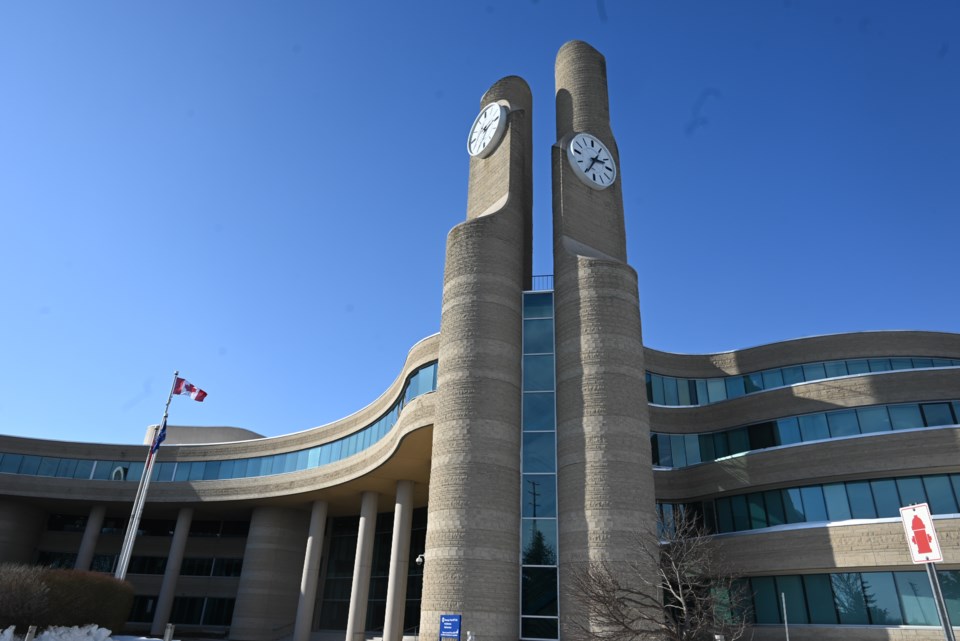York Region residents came out in force today to get the draft regional official plan changed or delayed out of concerns about its direction for urban expansion.
Hundreds of residents made deputations, submitted correspondence, or signed petitions that took umbrage with aspects of the plan that will guide land use for the region over the next 30 years. The statutory public meeting May 19 is the last one before regional council is due to give final approval to the plan in June to meet a July 1 provincial deadline.
Claire Malcomson spoke on behalf of Stop the Sprawl York Region, which is pushing to delay the official plan until after the provincial and municipal elections. She said the current plan is “environmentally destructive,” referring to the loss of farmland proposed within it.
“There are a lot of loose ends,” she said, adding that housing affordability, water quality, and greenbelt protection are also issues. “We want to create a safer climate for our future, and the draft official plan does none of these things adequately right now.
The plan includes more urban expansion and intensification to accommodate projected population growth, from 1.2 million to 2.02 million over the next 30 years. Regional council chose a phased 50 to 55 per cent intensification rate. But that has created pushback from those who called for a higher intensification rate to reduce the amount of urban sprawl over concerns about environmental impact.
Newmarket Mayor John Taylor spoke out against a point in a staff report that lower-tier councils supported the plan, noting Newmarket council passed a resolution to increase the intensification rate to 55 or 60 per cent, which could preserve more than 1,000 hectares of land from urban growth.
Several other speakers echoed concerns about urban expansion. The York Federation of Agriculture has maintained opposition to aspects of the plan, as it stands to expand the urban boundary into some “whitebelt” agricultural lands. Representative Kim Empringham said they are particularly concerned with expansion into the parts of provincially protected Oak Ridges Moraine lands.
“There are also several smaller threats that could result in death by a thousand cuts,” Empringham said. “Agricultural land should be recognized in the official plan as part of the natural environment and supported and protected."
Other deputations and letters addressed specific lands in the region that residents or groups would like to see designated differently. York director of long-range planning Sandra Malcic said many site-specific requests were rejected due to going against council direction or a constraint with provincial conformity. However, she said some changes were made due to public input for clarity and to make more targets locally based.
Housing affordability was also raised. The Affordable Housing Coalition of York Region asked for a new definition of affordability that would consider average household income.
Staff responded that more on that front would come with an affordable housing implementation plan that will be finished after the official plan. Taylor said that work should have been incorporated into the official plan review process.
“We can set even higher standards of affordability, but it doesn’t matter, we’re not meeting any of the current definitions right now,” he said, adding that he hopes the coalition suggestion gets consideration in the future. “I hope we are very ambitious.”
Responding to a deputation from Environmental Defence calling for higher densities and other changes, chief planner Paul Freeman said, “We don’t disagree with the need to intensify in neighborhoods, but we don’t believe that it’s a broad-based approach.
“This should be determined by municipalities based on the context of planning for their areas,” he said.
Georgina Mayor Margaret Quirk thanked staff for the effort of the plan but said she could not support it in its current form, referring to issues such as intensification rate and Oak Ridges Moraine expansion.
“My conscience won’t let me support the plan as presented,” she said.
The council meeting was ongoing as of publication deadline, with members discussing localized issues. The final approval of the plan is expected at the June council meeting.



